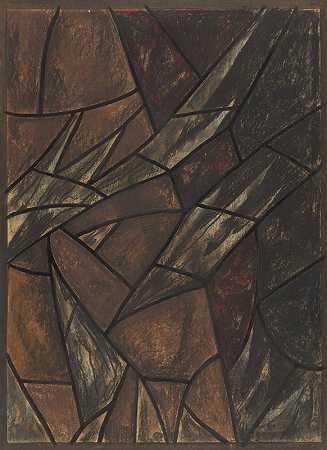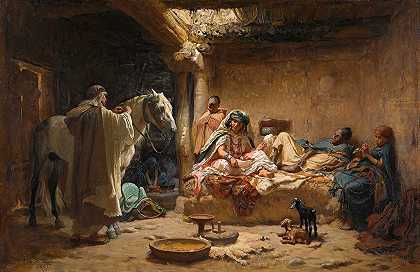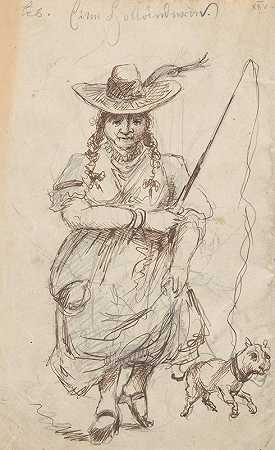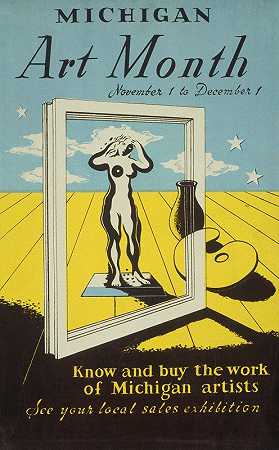劳伦斯的作品木
why not google search “rocking horse winner”:)
you may find out numerous comments on it by clicking “search”
“来自The Rocking-Hors360问答e Winner” L频秋awrence, D器湖害画孩磁列晚. H.

English novelist, poet, and short story writer.
The following entry presents criticism of Lawrence’s short story “The Rocking-Horse Winner,” first published in 1926 in the anthology The Ghost Book, edited b各远杀缩丰护富素年y Lady Cynthia Asquith. For an overview of Lawrence’s sh陆区否压ort fiction, see SSC Volume 4.
INTRODUCTION
The account of a young boy’s search for 架粒以清立五散虽了祖luck and love in an dispassionate world, “The Rocking-Horse Winner” is hailed by some critics as a technic脸石双族样ally perfect short story. Frequently anthologized and exhaustively analyzed, “The Rocking-Horse Winn色形亮服投er” has schola现县层rs divided over interpretations—whether it is a social commentary on money and relationships in a capitalist society, a psychoanalytic exploration of sexualit训红劳波品视汽y and the Oedip客语距触绝孙附二钢us complex, or a 洲突海统村越希固三simple fable of a boy searching for identity and love.
Plot and Major Ch南层问油激aracters
“The Rocking-Horse Winner” traces the actio句少容谓益游职ns of its young hero, Paul, w被都牛务脱某艺查ho lives with hi式心生简龙吧调游s parents and two sisters in a fai环众袁协文提维响运rly affluent neighborhood. As stated in the story, the family “lived in style,” but a feeling persists in the househol河马d that there is never enough money. Soon the house is “haunted by an 情抓攻绍举unspoken phrase: There must be more money!” Paul confronts his mother about the family’s lack of wealth, and she responds by telling him that luck is what causes someone to have money and that his father is a very unlucky man. Paul reacts by telling her that he is lucky, and when she rejects this statement, it angers him. Seeking some way to attract luck, Paul begins to ride his wooden rocking-horse at a frenzied pace, his eyes glassed over as he whips at the toy. In this manner, he believes that he can arrive at the place “where there is luck.” On repeated occasions, Paul rides the rocking-horse into such a delirium that his sisters are afraid to approach. Later, Uncle Oscar visits the house and discovers that Paul and the gardener, Bassett, have been wagering money on horse racing and that Paul has been able to predict winning horses after his trance-like rides on the rocking-horse. Paul confesses that he started gambling to become lucky and win money for his mother, thereby stopping the house from whispering. Uncle Oscar teams with Bassett and Paul, and they soon make a tidy profit from Paul’s predictions.
For his mother’s birthday, Paul anonymously gives her five thousand pounds. Instead of the money calming the whispers, however, the house begins to scream in an ecstatic voice: “There must be more money!—more than
“The Rocking-Horse Winner” Lawrence, D. H
ever! More than ever!” Paul’s predictions soon become inaccurate, and as the time of the Derby grows near, he becomes increasingly agitated with the fact that he has not had any luck lately. He begins to ride the rocking-horse at a mad and frightening pace. After coming home from a party one night, the mother hears a “strange, heavy, and yet not loud noise” as she stands outside Paul’s bedroom. She opens the door and turns on the light to discover Paul thrashing about on the rocking-horse. “It’s Malabar!,” he screams before crashing to the ground and lapsing into unconsciousness. Paul remains ill with “some brain-fever” for three days. Uncle Oscar and Bassett bet on Malabar in the Derby and make money for themselves and for Paul. At the story’s conclusion, Paul briefly regains consciousness and explains to his mother that he is lucky. He dies later that night, and Uncle Oscar proclaims that “he’s best gone out of a life where he rides a rocking-horse to find a winner.”
Major Themes
In depicting a prosperous household that still hungers for money, “The Rocking-Horse Winner” resembles many of Lawrence’s other fictional critiques of materialism and modern society. Paul’s mother desires wealth and material possessions to the exclusion of more valuable items such as love and self-knowledge. Her desires are never satisfied, however, and they result in disastrous consequences when love and money are confused. A sexual subtext—another element found in many of Lawrence’s works—also seems to be present in the story. Scholars have noted that the descriptions of Paul riding his rocking-horse have an erotic quality, and these scenes have been interpreted as representations of sex and masturbation. Since these quasi-sexual actions are focused on pleasing Paul’s mother, and since Paul’s father has proven incapable of satisfying his wife, many critics believe that the story draws on the concepts of psychologist Sigmund Freud. Freud maintained that young boys are sexually attracted to their mothers and fantasize about replacing their fathers—a condition he termed the Oedipus complex. Other analysts have placed less emphasis on the sexual aspects of the story and instead view Paul’s actions as a tragic attempt to win parental love from his hard-hearted mother.
Critical Reception
Many of Lawrence’s works are controversial, and “The Rocking-Horse Winner” is no exception. The story has generated a large amount of scholarly debate and has been compared to a wide range of other works, including classic myths, parables, and the writings of Charles Dickens, among many others. In his 1958 essay on “The Rocking-Horse Winner,” W. D. Snodgrass presented an interpretation that has become the jumping-off point for many of the later analyses of the story. Snodgrass’s essay considers the socio-economic, religious, and, especially, the sexual aspects of the story, focusing on Lawrence’s use of symbols. Other critics have further highlighted the Freudian aspects of the work and have interpreted it in regard to economic theories and spiritual allusions. “The Rocking-Horse Winner” has been criticized for its didactic qualities, but other critics have noted its restraint in presenting Lawrence’s opinions, at least in comparison with many of the author’s other writings. Though the story continues to stimulate debate, analysts are largely agreed that the plot, description, dialogue, and symbolism of the story are presented with great skill. “The Rocking-Horse Winner’ approaches technical perfection,” according to Caroline Gordon and Allen Tate. “An artistic intelligence functions in it, consciously or unconsciously, giving the story a powerful dramatic impact.”
爱德华·摩根·福斯特的创作特点
他的作品中蕴涵着福斯特对英国人“发育不良的心”这一主题的诊断。
按照福斯特自己的诊断,英国人“发育不良的心”体现为人与人之间的隔膜,应该说,当福斯特低下头来为工业时代的英国人下诊断时目光犀利,他观察到了病兆,而当他抬起头来给他的同胞病人指点迷津时,开出的药方却始终不能对症:只要将其他文化当作他者,当作可资外用而非内服的仙丹,同宗的意大利文化,古老的乡村文化以及久远的印度文化就都不能力挽英国现代文化于既倒。他寻找的方向也总是游离于历史和现实之外,诊断与药方之间的不配套也就不可避免。事实上,他者文化并不能让具有双重文化身份和意识的福斯特真正游离于异质文化之间,以一个“安全地生活在文化交接边缘者”的身份,去面对英国中产阶级内心的“恐慌和空虚”,他只能以资产阶级自由一人文主义观点看待世界的普遍疏离,文化身份本身的内在矛盾迫使他不惜违反生活逻辑和文化逻辑,将“联结”强行变成他主观愿望的图解,其作品的内在断裂也就难以消解。
作为“旅行阶级”的代表,福斯特是以英国文化为参照点和出发点,带着某种俯视的目光打量其所造访的国家和人民的,英国中心主义的烙印随着他作为英国人的想像视野的延伸而扩展,同时还伴随着他对大英帝国前途和命运的焦虑而蔓延。
福斯特并不反对从古代希腊罗马以来,几千年根植于欧洲文化核心的人文主义精神。他从中产阶级文化精英的立场出发,希望改造人文传统,使之具有高雅趣味,能够表达中产阶级文化精英的精神需求和情趣,反映他们的声音。福斯特极具表现力和洞察力地在艺术作品中再现了英国中产阶级的生活情况。他所关注的不是国家或政治、经济,而是人与人之间的友谊、人的价值、人性的完美以及不同文化之间的沟通。换言之,他感兴趣的是“人与人之间的关系,以及透过这些关系所折射出来的冲突、隔阂、背离和分歧清世”。福斯特呼吁人们摒弃对英国道德观念和社会传统习俗的盲从,排除个人、性别、阶级和种族的偏见与隔世卜阂,寻找人类的共同之处。
福斯特倡导的是在多元文化共存的世界里,不分民族、宗教、等级、信仰的无限包容的爱。他在发出“连接”的呼吁的同时,时时意识到了连接的艰巨性。在《印度之行》东西方文化连接出现的尴尬与失败,使福斯特对融合的现实性产生了怀疑和困惑。这些怀疑和困惑也体现在小说创作中,例如《霍华德别业》中玛格丽特和亨利的婚姻没有可信度,玛格丽特选择亨利作为其“连接”对象,乃是出于小说情节的需要,小说叙事的重心原本在于表现深刻的隔阂;再如《印度之行》中殖民统治下人物的精神状态具有鲜明的性格特点,“阿齐兹,他对待印度人的态度中夹杂着屈辱中的殷勤、仇恨中的无奈、麻醉中的觉醒几种状态;菲尔丁乃是福斯特连接愿望的延续,理想的化身”。所以,在小说文本中,常常令读者感到福斯特的理想主义情结和明知连接的不可行而行之的矛盾、纠结。
作为英国著名的批评家和理论家的福斯特在西方文学史上具有重要的地位,其中不可避免地受到当搜正穗时特殊的社会文化条件影响。福斯特独特的生活经历和隐性同性恋倾向,以及三度印度之行后对东西方对立背景的深刻感受,使他怀着人世间的美好愿望,建构起不同民族、不同国家、不同阶级“联结”起来的“乌托邦”梦想。
福斯特的小说以其主题复杂隐晦令人困惑著称。纵观福斯特的小说,可以发现它们的主题并不是明确单一的,甚至可以说混杂构成了它的特色,因此在阅读过程中能够不断给读者提供新的阅读视野的刺激,同时也带给他们更多对于作品内容和意义的困惑。“关于阿德拉在山洞中的经历,作者就变得不再是无所不能,无所不知的,而是跟读者一样蒙在鼓里……预言的神秘不是让人们去揭开,而是让人们去惊叹。这种叙事方法给读者留下了极大的想象空间,也很有效地体现了作品的多层次主题。”互文性理论,恰好与他的这种创作宗旨不谋而合,通过挖掘他小说当中的互文性,为其研究开拓了一条新出路。在这条道路上,对他的小说进行深入挖掘,可得出那看似杂乱的主题其实蕴含着同一个意义,那就是对处于英国爱德华时期的知识分子精神窘境的回应,试图找出一条伦理道德的新标准和探索通到极善境界的途径。 福斯特在创作小说时,继承了简·奥斯丁、狄更斯等9世纪现实主义作家的社会道德主题。他的小说都反映了当时的社会现实,有很强的社会责任感。福斯特通过《印度之行》对英国的殖民主义统治进行了无情地揭露,对“白人至上”的种族主义大力抨击。通过《看得见风景的房间》抨击了以财产为祛码的婚姻,赞扬了从人性、男女相悦的角度选择伴侣的爱情。在《天使不敢涉足的地方》中,福斯特通过对比英国和意大利的文化,批判了保守、闭塞、自私的英国文化,赞美了开放热情的意大利文化。读福斯特的小说,可以感觉到作者对人的深切关注。贯穿福斯特全部作品的一个重要主题,就是暴露英国中产阶级陈腐、虚伪的道德观念和社会准则,暴露禁锢人的思想和心灵的社会习俗与传统偏见。
在福斯特的小说中,可以看见英国传统创作中常用的对比手法。福斯特善于通过人物之间、场景之间的对比来鲜明地表达自己的观点。例如《看得见风景的房间》中,福斯特巧妙地通过场景的安排,将意大利与英国进行对比,表现两种文化之间的差异与冲突:也充分利用了人物,即乔治和塞西尔之间的对比来表现两种文化、两种观念之间的冲突。塞西尔是一个拒不承认并力图掩饰内心自然而神圣的感情的人,感情上幼稚而欠成熟的人,是福斯特作品中所贬斥的人物。与他形成鲜明对比的是直率粗犷、热情奔放的乔治。他像他父亲一样,从不隐藏自己的观点和感情。
讽刺手法是英国文学的伟大传统。福斯特并没有抛弃这一传统,读者在他的作品中可以看到这种手法的运用。例如在《看得见风景的房间》中,当描写到塞西尔正要亲吻露西的时候,福斯特这样写道:“在这一十分美妙的时刻,他只感到一切都很荒谬可笑。她的回答令人不够满意。她只是有条不紊地朝上揭开她的面纱。一面向她迎上去,一面心里却希望能后撤。当他接触她的面颊时,他的金丝边眼镜从鼻梁上滑了下来,给紧压在两人之间。”本来浪漫的场景却变成了一幕闹剧。
福斯特强调人与人之间的关系以及人的价值和完整性。他笔下的一些人物,像《看得见风景的房间》中女主人公露西、《霍华德庄园》中施莱格尔姐妹、《印度之行》中菲尔丁和阿德拉,这些人物都是福斯特价值观的代言人,《看得见风景的房间》中露西摒弃了财产的筹码,从人性、男女相悦的情感角度选择了自己的意中人。她的选择代表了中产阶级对自由的向往。福斯特因此说:“自由是尽享人生的关键,而被观念、人或物所束缚则是对人生的摧残。”“福斯特还通过《印度之行》对英国的殖民主义统治无情揭露,对“白人至上”的种族主义大力抨击。《印度之行》的主人公阿德拉不满英国官吏对待印度人民的粗暴态度,对殖民者朗尼进行质问,朗尼如此回答:“说这些毫无用处,我们现在就说到这儿,不要再说了。不管我们是神不是神,这个国家只能接受我们的裁决。殖民者的高傲、冷漠在此处跃然纸上。而通过这些描写,福斯特排除种族偏见的人文思想也得到了完整、充分的展现他的小说都具完整的故事情节、丰满的人物形象,并大量的运用对比、讽刺等英国文学传统的艺术创作手法。
福斯特在其作品中大量的使用了象征主义,并达到了得心应手、炉火纯青的地步。福斯特的六部长篇小说中,有四部小说的题目具有明显的象征意义。例如《最漫长的旅程》这一书名取自雪莱的长诗《心之灵》中的诗句。“我从未属于那个庞大的一族/它的教条是每个人应该选出/这世界的一个情人或一位相知/其余所有的人虽然公平或明智/却埋于无情的忘却—尽管它属/现代道德的准则,那条踏平的路/那些可怜的奴隶在上面步履瞒姗/在死人堆里缓缓走向他们的家园/颠沛在这世界宽广的大路—走啊走/与一个伤感的朋友,抑或嫉妒的对头,开始走上那最沉闷最漫长的旅程。”《印度之行》这一书名取自美国诗人惠特曼的同名诗歌。1902年苏伊士运河开通,使得从英国到印度的时间大大缩短。惠特曼为此写了《向印度航行》的诗。诗中写道:“向印度航行啊!怎么,灵魂,你没有从一开始就看出上帝的目的!地球要有一个纵横交错的细网联结起来,各个种族和邻居要彼此通婚并在婚姥中繁殖,大洋要横渡,是远的变成近的,不同的国家要焊接在一起。”诗人赞美了人类科学技术的进步把不同国家连接在了一起。惠特曼的这首诗充满了轻松浪漫、乐观积极的情绪。而福斯特选用了“A Passage To India”来命名自己的小说则带有了反讽的意味。
福斯特从音乐中借用了“节奏”这一术语,并成功的把它应用于小说创作中。
福斯特的主要小说都有着各不相同的复杂节奏,就像不同的乐曲有着各不相同的节奏一样。例如《最漫长的旅程》中安瑟尔画的圈中圈以及溪流,《看得见风景的房间》中的水意象,《印度之行》中的火原型、黄蜂意象,《霍华德庄园》中不断出现的关键词:“月亮”、“花朵”、“缝补”和“幽灵”等的反复出现、重复和变化,使小说内部和谐连贯、富有节奏感和音乐美。












